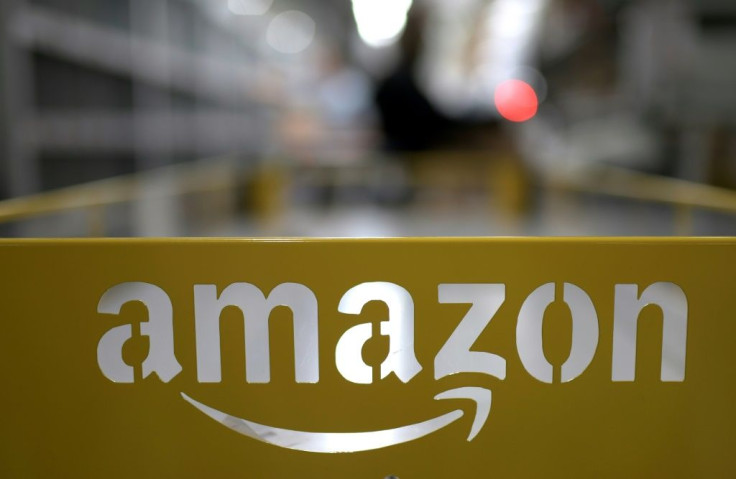Amazon's Biggest Cloud Competitors Are Mostly Stealing Market Share From Smaller Companies

Amazon's (NASDAQ:AMZN) cloud computing business, Amazon Web Services, has been a massive source of profits for the online retail giant. The cloud business generated over 60% of Amazon's operating income through the first nine months of 2019. That number could grow higher in 2020 as Amazon increases its investments in Prime shipping benefits.
But Amazon has seen some big-name competitors increase their presence in the enterprise cloud computing market over the last half-decade or so, namely Microsoft (NASDAQ:MSFT), Alphabet's (NASDAQ:GOOG) (NASDAQ:GOOGL) Google, and Alibaba. All three have grown their cloud businesses at a faster rate than Amazon in recent years.
Indeed, Amazon's losing some of its market share in cloud computing, as an article from the Wall Street Journal points out. Where it had 53.7% of the market in 2016, it only had 47.8% of the market in 2018, according to data from Gartner. But smaller companies are feeling much more pain. The combined market share of competitors outside of the top five fell from over 50% in 2015 (the year before Amazon's market share peaked) to less than half of that in 2018.
Amazon remains far and away the market leader in terms of both market share and innovation. The question going forward is whether continued advancements from Microsoft, Google, and Alibaba will start really cutting into Amazon's market share now that the smaller competitors have fallen so far behind.
Competitors are winning edge cases from Amazon
For the most part, competitors aren't stealing existing customers away from Amazon. Even when an existing AWS customer announces a new deal with Google or Microsoft, it's usually for just a slice of their cloud computing needs.
Google has developed excellent cloud computing services focusing on the things it does best, for example, analytics -- taking a bunch of data and returning the relevant pieces, like a Google search. So, when a company like Spotify wants to create a whole bunch of personalized algorithmically generated playlists for its users, Google's going to win that contract. But that doesn't mean Spotify's existing deals with Amazon Web Services -- for things like storing all the song files in Spotify's catalog -- are going away.
Likewise, Amazon won a considerable contract from Snap just after the company signed a contract to become Google's biggest cloud customer. That shows how indispensable Amazon can be for companies relying on cloud computing.
Meanwhile, some of Microsoft's biggest successes have come from retailers looking to move more of their computing to the cloud or away from Amazon. There's a fear that Amazon will gain an advantage through access to data from competing retailers despite the company's claim that the cloud computing arm and retail arm operate separately. As a result, Microsoft has won some big cloud computing contracts from retailers. That's led some investors to call for Amazon to spinoff AWS.
Microsoft also notably won a contract with the Pentagon in October to provide cloud computing services worth up to $10 billion. That came as a surprise to analysts, investors, and Amazon. Amazon is currently contesting that outcome in court. Amazon says AWS offers greater "security, efficiency, resiliency, and scalability of resources" than Microsoft, factors that should've been key in the government's decision.
These trends should continue, but Amazon investors shouldn't worry
Google and Microsoft are always going to be able to do certain things better than Amazon. By the nature of their core businesses, they're developing services that they can use themselves and they're able to see greater returns on those investments than Amazon could if it was just developing them to offer more cloud computing services.
So, Amazon shouldn't try to out-invest its competitors in research and development to stay ahead of them. Instead, it should focus on what it does best. After all, that's how Google and Microsoft have grown over the last few years.
Meanwhile, Amazon's growing efforts to enter new markets, including grocery, shipping, and healthcare, will continue to drive some customers to Microsoft or Google to keep their data off Amazon's servers. Still, those instances ought to be few and far between as long as Amazon maintains its competitive advantages in its ability to crunch customer, sales, and vendor data -- the things it uses in its core retail business.
Microsoft and Google might see their growth continue to outpace Amazon's, but investors should expect to see greater consolidation in the market as Amazon remains a leader in the cloud computing space.
John Mackey, CEO of Whole Foods Market, an Amazon subsidiary, is a member of The Motley Fool's board of directors. Suzanne Frey, an executive at Alphabet, is a member of The Motley Fool's board of directors. Teresa Kersten, an employee of LinkedIn, a Microsoft subsidiary, is a member of The Motley Fool's board of directors. Adam Levy owns shares of Alphabet (C shares), Amazon, and Microsoft. The Motley Fool owns shares of and recommends Alphabet (A shares), Alphabet (C shares), Amazon, Microsoft, and Spotify Technology and recommends the following options: long January 2021 $85 calls on Microsoft and short January 2021 $115 calls on Microsoft. The Motley Fool has a disclosure policy.
This article originally appeared in The Motley Fool.




















